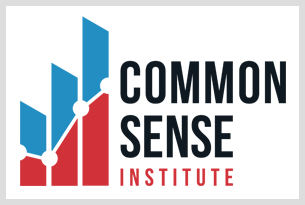![]() FULL REPORT Authors: Cole Anderson, Erik Gamm
FULL REPORT Authors: Cole Anderson, Erik Gamm
Prices Fall over Last Two Months
Although year-over-year inflation in Colorado continues to outpace national inflation, costing Colorado families $1,206 more each month over pre-pandemic spending. Prices in Colorado fell by 0.34% between September and November—the first period of deflation in over a year aided by a decrease in energy prices. Prices in Colorado decreased by 0.34% during October and November, down from a 0.43% increase over the two months prior. Aided by this decrease, Colorado’s 12-month inflation rate fell from 5.35% to 4.5% in November, which remains above the national average of 3.12%. From Nov ‘22 to Nov ‘23, household fuels and utility prices grew by 11.2% in the Denver MSA but only 0.2% nationally. The prices of food (-0.31%), transportation (-1.72%), recreation (-0.69%), and education (-1.15%) decreased while those of housing (0.37%), medical care (1.86%), and utilities and household fuels (1.17%) rose. Of the 23 metropolitan area CPI series tracked by BLS, Denver’s total price growth since the end of 2020 ranks 9th.
- Between September and November, prices in Denver fell by .34%. This was the first two-month period of deflation since September of last year.
- From Nov ‘22 to Nov ‘23, household fuels and utility prices grew by 11.2% in the Denver MSA but only .2% nationally.
- In October and November, the average Colorado household spent $2,412 more due to inflation—an average of $1,206 per month. The average Colorado household has spent $24,124 more since 2020 because of higher inflation.[i]
- Metro Denver inflation has dramatically outpaced the national average over the last 12 months—5% in Denver compared to 3.12% nationally.
In October and November, the average Colorado household spent $2,412 more due to inflation—an average of $1,206 per month. Since September, the Federal Reserve has held its key interest rate steady; if inflation continues to abate, the Reserve is unlikely to resume raising rates.
Inflation in metro Denver over the last 12 months was 4.5%—1.38 percentage points above the national average (BLS CPI Survey)[ii]
- Of the 23 urban consumer price indices tracked by the BLS, Denver–Aurora–Lakewood’s ranks 9th in total growth since the end of 2020.
- Average annual inflation between 2010 and 2020 was 2.51%. Since September 2022, 7 of the categories shown on page 4 have grown by more than that and 6 have grown by less.
- The two price categories that grew the fastest over the last 12 months were fuel and utilities and medical care, which grew by 11.2% and 6.5%, respectively.
Price Changes in Metro Denver over the Previous Year
[i] Impacts on household spending are generated by distributing the consumer expenditure estimates from https://www.bls.gov/regions/mountain-plains/news-release/consumerexpenditures_denver.htm across individual months, weighting them according to their corresponding CPI levels, and adjusting them according to the latter’s growth history. [ii] https://www.bls.gov/cpi/

